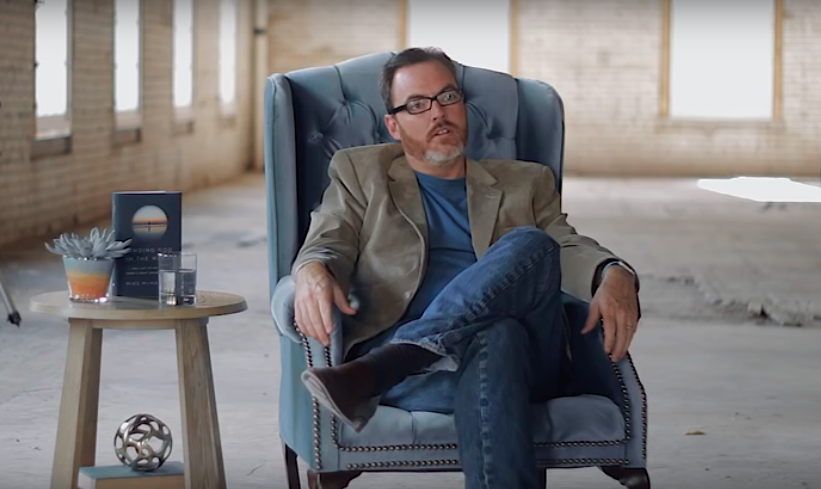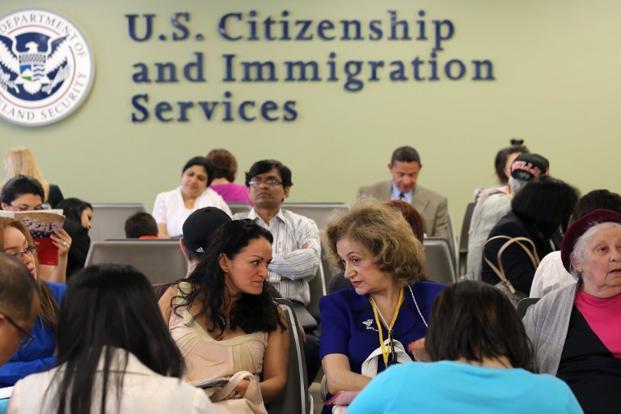The religious landscape in the U.S. is changing, with fewer Americans believing in God since 2007. The shift has brought some to leave their spiritual communities with little to supplement the social gap.
Mike McHargue, also known as Science Mike, creates podcasts and has written a book, “Finding God In The Waves,” for people to have honest conversations about faith in a contemporary, scientific context. Many find his work to fill the gap between old religion and no religious conversation at all. His podcasts, Ask Science Mike and The Liturgists Podcast, are downloaded 2-4 million and 250,000-350,000 times per month, respectively.
McHargue talked to The Globe Post about his observations. This conversation has been edited for length and clarity.
Q: It seems that people are going to podcasts instead of churches increasingly. Why is that?
McHargue: I don’t think that it’s such a clean swap. I think that for a lot of reasons, religious affiliation in America is declining. Something like 44 percent of Americans will go through a faith transition at least once in their lives.
Those faith transitions are predicated by all sorts of things. They could be views on social issues, like acceptance of same-sex marriage; they can be predicated by environmental concerns. One statistical predictor of a faith transition is if a congregant’s views on evolution differ from the official doctrine of a church, which may seem like a small thing, but I think that’s not a wedge issue, it’s just such a good predictor for an associated set of insights.
So people see church as increasingly insular, self-serving and as propping up all sorts of injustice, especially on matters of race, gender, and sexual orientation. So they are leaving churches behind. But unlike what we saw in Europe, they aren’t becoming less spiritual or more secular; atheism is not growing all that quickly in the United States. Instead, people are maintaining this open, spiritual posture detached from any particular, organized religion.
I think, this is not based on research but on my own experience and my work, that what drives them to podcasts is simple loneliness. Religious communities do provide a sense of identity and belonging, and we also know that faith transitions can be emotionally traumatic, that they can cause pretty enduring depression, anxiety and even, potentially, suicidal ideation. So people turn to podcasts for a sense of someone else who’s been there initially trying to process their own thoughts and feelings, but ultimately find kind of a loose-knit virtual community that serves to relieve some of the hurt from losing that embodied community they had for many years.
Q: This seems to be a bigger community than people might think, do you agree?
McHargue: Well, I do think that but I don’t think it’s surprising. If you look at the number of Americans that describe themselves as “no religious affiliation” or commonly called the “nones” in media, they’re not only the fastest-growing religion, they’re one of America’s largest religions now. There’s very little media that caters to that. There really is no purely secular, nonreligious media in America. There is humanist, kind of advocacy media, which I’m a big fan of, but maybe it isn’t palatable to many post-religious folks. And then there’s all kinds of spiritual media that’s either new age or – there’s nothing wrong with new age, by the way, it’s dependent on everybody’s perspective – is from some religious tradition that basically forms to proselytize and indoctrinate people.
There are very few media platforms out there that say “Wherever you are, we’re okay with that.” When we started doing that on The Liturgists Podcast I think, more than anything, that kind of open, nonjudgmental, accepting and affirming posture is what caused the program to grow so quickly.
Q: What do you think that says about the future of Christianity and churches? Do you think we’re going to see more churches go that direction, or do you think we will see churches disappear?
McHargue: I don’t think churches are in any danger of disappearing. If you look on a global basis, Christianity is doing just fine, it’s growing quickly in the global south and the global east. Clearly, churches are really suffering in Europe; they have declined and continued to decline. But what’s interesting when you look at the data and you see when churches attendance has fallen so precipitously among millennials and post-millennials compared to boomers and Gen X, that would make you think there’s this trend line to the elimination of faith.
But when you really start taking the numbers apart you find the collapse of organized religion is a phenomenon pretty unique to white Americans and Europeans. People of color, including Hispanic, Latinx and black Americans, don’t have the same collapse in religious affiliation or service attendance as their white counterparts do. If these trends hold steady the only thing you need to cause a resurgence of religion in the United States is this continuing decline of the white population as a percentage of the overall population.
I, just to wax philosophical for a moment, think that speaks to some of the limitations of whiteness and white culture in America, that makes it difficult to approach Christianity in a way that fills people with life and serves others. That is one of the major forces driving the decline.
Q: Do you think there will be a cultural or political shift in American churches going forward?
McHargue: Churches with people of color have engaged in political advocacy, and it’s nothing new for them. It was a matter of survival. Among white churches, I actually expect a deepening and entrenching of the far religious right. If you look at progressive cities in America like the Bay Area, Portland, Seattle and Los Angeles, especially around the west coast you find that Christian communities are further to the theological right.
You would think, “gosh, that’s strange, those should be the most progressive places theological points in America,” but if you’re going to be a Christian in San Francisco, it’s countercultural already, so why not go ahead and say the world was created in six days and that God opposes same-sex marriages?
I don’t think this is crafted intentionally, but when we look at sociological data and research, religious institutions that put bigger barriers on being a part of the community drive higher participation and lower defection rates. So making this stronger countercultural stance actually helps you keep congregants in line, in agreement and feeling a sense of identity. I expect that as America continues to move more to the left progressively, perhaps even politically you’re going to see a counter-reaction where a remnant of the evangelical church becomes much more fundamentalist and in doing so, reaches a point of statistical equilibrium or even slow growth and becomes very, very right-leaning, as we’ve seen with Jerry Falwell Jr. and Liberty University. Liberty University has not suffered in terms of finances or attendance because of its affiliation with the Trump administration. What it’s doing is building a castle wall around a socio-political belief. That will doom the movement from having the kind of influence that it has had since the moral majority in my opinion.
Q: The 2015 Pew survey on America’s religious landscape shows more progressive mainline churches with the greatest losses. Is this just because people are on their way out of organized religion?
McHargue: I found so often that theological progressivism is simply a stopping point for people on their way out of organized religion completely. I think you’ll see some mainline denominations merge a few years from now, I don’t know if that’s five or 15. But they won’t have the numbers to sustain themselves. I don’t think the mainline will disappear but I think it will play a dramatically reduced role. If they continue as they are now, they are going to be extremely small, fringe organizations. I say that with great grief – I love the mainline; I attend a mainline denomination. But right now, there’s just not the interest.
If, and this is a big “if”, mainline, especially white mainline Protestant denominations, continue to engage in justice work and continue to employ more people of color as priests, bishops and leaders, they could benefit from this potential third great awakening of America that comes with an ever-increasing percentage of the population being people of color.
Q: What are the things missing from the conversation about the future of Christianity right now?
McHargue: It’s great that people are finding faux-community online, but when we look at humanity’s basic psychological needs, the collapse of our religious systems is producing a measurable mental health crisis in America and an epidemic of loneliness and isolation.
I’m, to some degree, discouraged by the success of my podcast because we’re doing a great job helping people find each other online and a terrible job helping people find each other in actual neighborhoods and communities. For people to be healthy and culture to be healthy and for faith to be useful, the majority of these interactions need to happen face to face. So I think the biggest thing missing from the conversation about religion’s transformation in America is What do we do to have spaces for people to meet together, talk together, worship together and serve together?
Q: You’ve said you’re working on a new book. What can you tell me about that? Where is your work going in the future?
McHargue: My work is pretty simple. I try to use insight, primarily from science, to try to help people understand themselves, to find healing and to connect with others in a way that produces growth. My next book continues in that vein. I’ll still be speaking and podcasting, of course. My next book is called “You, Wonderous You: A Look Inside The Miracle of Yourself and Why You’re a Pain In Your Ass.” I’m going to take spiritual teaching and process it through the lens of neuroscience and cognitive psychology to help people understand why it is so tough for us to be the people we want to be, and maybe teach people to offer themselves a little grace in the process.






















